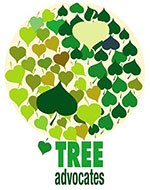This is the advice from NZ police:
What are the rules around taking photos or filming in a public place?
It is generally lawful to take photographs of people in public places without their consent. However, you must not film or take photos of people if they are in a place where they can expect privacy (such as a public changing area or toilet) and that person:
- is naked, in underclothes, showering, toileting etc
- is unaware of being filmed or photographed
- has not given consent to be filmed or photographed.
You should not take photos of people if:
- they are in a place where they would expect reasonable privacy and publication would be highly offensive to an objective and reasonable person
- it has potential to stop other people’s use and enjoyment of the same place
- you have no legitimate reason for taking the film or photos.
However, you can take and/or publish photos or film of people where there is no expectation of privacy, such as a beach, shopping mall, park or other public place.
Can you photograph or video police in New Zealand?
An article from Tech Liberty NZ (NB October 2011) has this to say:
‘We wrote to both the Police Commissioner and the Minister of Police and asked them “Is it against the law in New Zealand to take photos of video of the police at work?”
The Police responded first: “No, not if the photos of video of police at work are taken in a public place, or with the landowner’s consent if on private property.”
Judith Collins, the Minister of Police, backed up the Police’s position in her response, going on to say that she saw no need to change the law and was not aware of any plans to do so.
It seems clear that in New Zealand the police can’t stop you from documenting what they are doing. They have no power to stop you, seize your camera or force you to delete images or video.’
(TreeAdvocates: If anyone has anything more up-to-date, please share with us.)
Our advice is:
- If you’re being photographed or filmed by security personnel and you don’t like it, the position is that you have ‘not given consent to be filmed or photographed’ so you can tell them to stop.
- If you’re filming or photographing in a private space e.g. Council chambers and asked to stop, you may well have to – subject to issues around public nature of meeting.
Articles of interest:
How Private is Private When Taking Photos in a Public Place?
A brief and clear summary of recent case law, as well as the above police advice.
Police using app to photograph innocent youth: ‘It’s so wrong’
An article in Radio New Zealand reporting that ‘police are approaching innocent young people, photographing them, collecting their personal details and sending it all to a national database’.
Terms of Reference of joint inquiry into Police photographing of members of the public
This has come about following an outcry about Police taking photographs of Māori young people in Wairarapa in August 2020. A copy of the Terms of Reference can be obtained here.
